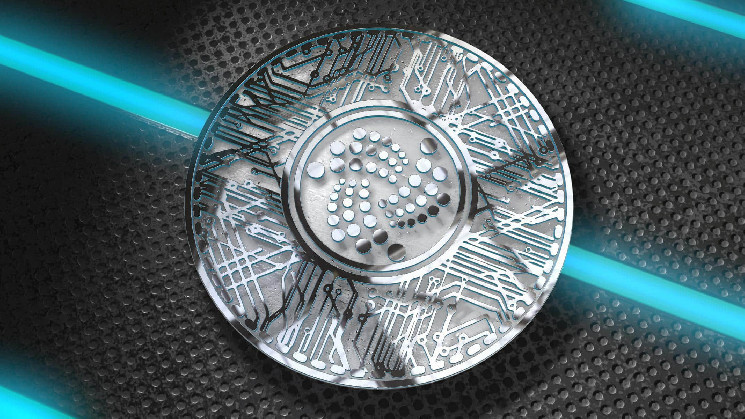- IOTA and Zebra have partnered to offer users state-of-the-art digital product passports (DPPs) based on trustful value chains, promoting a circular economy model that includes new product data management.
- DPPs enable users to track products, including information such as origin, composition, durability and end-of-life handling, targeting businesses, customs, consumers and more.
Blockchain has moved beyond hype and is now focused on utility, and the IOTA ecosystem is a global leader in this revolution. At Zebra DevCon 2023, the IOTA Foundation’s José Manuel Cantera discussed how the partnership with Zebra is changing commerce through digital product passports (DPPs) and how IOTA’s scalability is powering the revolution.
Cantera dived into how the partnership with Zebra avails DPPs based on trustful and transparent value chains. Cantera is the senior ICT expert and consultant at the Foundation. In his role, he focuses on strategic technical leadership, including the partnership with the European Commission under the EU Blockchain Services PCP.
[ICYMI] Missed #ZebraDevCon2023? You can now watch José M. Cantera's presentation on Digital Product Passports. @ZebraDevs and #IOTA are building DPPs based on transparent and trustful value chains. Learn how! 🧵⬇️ https://t.co/MxcO5LgrEk pic.twitter.com/8T67ZLmIE9
— IOTA (@iota) January 11, 2024
DPPs are a project under the European Commission to enable the sharing of key product information critical for sustainability and circularity. A circular economy is based on the recycling and reuse of materials and products to promote sustainability.
As Cantera told the attendees of the Zebra DevCon, DPP provides data such as product information, manufacturing procedures and their environmental footprint. They also offer key tracking events such as transportation conditions and certificates such as warranty and compliance.
The target audience is market surveillance authorities for verification of compliance, consumers to promote safer purchases and authenticity, customs authorities to promote efficient enforcement activities and businesses.
The Circular Economy—IOTA and Zebra’s DPP Revolution
DPPs are only feasible on decentralized ledger technology. However, blockchain-based DLT falls short as it relies on slow periodic block creation. Blockchain suffers from a tradeoff, with fast block creation leading to a lapse in security and vice versa. Blockchain also relies on sequential writing with one leader at a time and inefficient sequential processing. Blockchain networks also rely on miners who in most cases are a small group of players.
IOTA’s Direct Acyclic Graph DLT is the ideal solution, offering a fast and continuous message stream. Parallel writing is faster than blockchain networks while its parallel processing is more efficient. DAG has no miners; instead, it relies on many writers and a more flexible incentive structure.
IOTA and Zebra offer developers a framework to create data commitments through audit trails. These are data structures composed of a chain of data records capturing a sequence of states.
The two entities have conducted successful experiments proving the feasibility of their solutions. One focused on the use of DPPs for electronics where they partnered with Spain’s Universidad Politécnica de Cataluña and electronics giant HP. In the second experiment, they partnered with American software company Digimarc for plastic upcycling.
The partnership is gaining traction in Europe, with the IOTA Foundation emerging as one of three finalists from over 30 applicants to participate in the final phase of the EU blockchain services PCP process.
